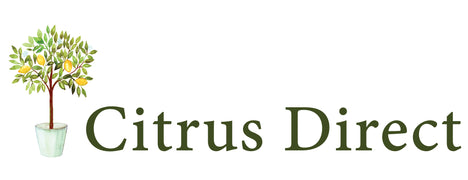Scale - Types, Damage and Control Strategies
Dec 15, 2024
Scale insects are tiny, common pests that attach themselves to citrus trees, sucking out the sap. They can cause significant damage if left untreated, leading to weakened trees, reduced fruit production, and even death of the tree. In New Zealand, citrus trees are susceptible to several types of scale insects. They fall into two main groups armoured scale and soft scale.
Armoured Scale: This scale has a hard, protective shell and is typically small, measuring about 1-3 mm. They can be brown or grey and are often found on the twigs, small branches and leaves. Scale can be difficult to control.

Photo Above: Armoured scale
Soft Scale include brown soft scale and cottony cushion scale. Soft scales are larger, often round or oval, and can produce a sticky substance known as honeydew. They range in colour from brown to yellow.

Photo Above: Cottony cushion scale
Damage Signs
- Visible Scales: Look for small, raised bumps on the leaves, stems, and fruit.
- Yellowing Leaves: Scale infestations can cause leaves to turn yellow or pale.
- Reduced Growth: Infested trees may exhibit stunted growth or dieback.
- Honeydew: Scale insects secrete a sticky substance called honeydew, which can attract sooty mould. This can cover the fruit and leaves, affecting photosynthesis, overall tree health and appearance of fruit.
Control strategies:
- Regular Inspections: Monitor trees frequently for early signs of scale.
- Regular Pruning and removal of debris: Remove dead, diseased, or heavily infested branches, as well as fallen leaves and fruit. This will minimise pest habitat and help to control scale populations.
- Hand Removal: For small infestations, manually scrape or wipe off scales.
- Water Spray: Use a strong stream of water to dislodge scales from the tree, particularly effective for soft scales.
- Horticultural Oils: can suffocate scale insects when applied in cooler weather (early spring or late autumn).
- Systemic Insecticides: If the infestation is severe, systemic insecticides can be used. However, these chemicals can harm beneficial insects as well. Consult with a local agricultural extension service for advice.
- Ensure trees are healthy: Ensure trees are not under stress from environmental factors like drought, over watering or poor soil conditions. Stressed trees are more susceptible to infestations. Use mulch to maintain soil moisture and improve tree health.
- Encouraging Beneficial Insects: Ladybugs, lacewings, and parasitic wasps are natural enemies of scale insects. Consider planting flowers that attract these beneficial insects. Plant flowers or herbs that attract beneficial insects nearby, such as marigolds or dill.




